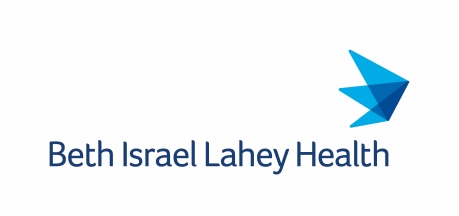Newswise — Laurence A. Turka, MD, an international leader in the fields of transplantation immunology and transplantation research, will join the faculty of Beth Israel Deaconess Medical Center (BIDMC) and Harvard Medical School, effective Nov. 1.
Turka comes to BIDMC from the University of Pennsylvania’s Department of Medicine, where he is the C. Mahlon Kline Professor of Medicine and formerly Chief of the Department’s Renal Division. A distinguished leader in the field of immune tolerance research, Turka serves as a Deputy Director of the Immune Tolerance Network, an NIH-funded consortium of researchers working together to establish new treatments for diseases of the immune system. As editor-in-chief of the prestigious Journal of Clinical Investigation (JCI), Turka is also a prominent voice in clinical and translational research.
“Dr. Turka is a research pioneer in the field of transplantation immunology,” said BIDMC Chief Academic Officer Vikas Sukhatme, MD, PhD. “His work has greatly advanced our understanding of the immune system as it applies to transplantation, as well as providing us with a greater understanding of autoimmune diseases, allergies and asthma. His fundamental discoveries into how the immune system causes organ transplant rejection have provide us with novel insights that have led to new strategies to combat transplant rejection.“
At BIDMC, Turka will have dual appointments in the Departments of Surgery and Medicine, joining Terry Strom, MD, as Co-Scientific Director in BIDMC’s Transplant Institute and as Co-Director of the Division of Transplant Immunology in the Department of Medicine. He will be a visiting professor at Harvard Medical School pending his formal appointment.
“Transplant patients and their physicians face the challenge of organ rejection,” notes Strom. “The research being conducted in the Transplant Institute is directed toward a broader understanding of both transplant science and immunology [the body’s ability to accept or reject foreign tissue] and how medication can protect and maximize donor organ function and endurance. As an internationally recognized leader in investigating new approaches to overcoming organ rejection, Dr. Turka will strengthen our Center’s already strong program, bringing complementary ideas, new expertise and a commitment to the development of new therapies for patients.”
Turka’s research focuses on immune tolerance, whereby the immune system is “reprogrammed” in very specific ways that correct problems that threaten health, while leaving the body’s normal disease-fighting immune responses intact. His scientific contributions include pioneering work in the areas of costimulatory blockade to induce transplantation tolerance, the role of deletion in the induction of peripheral tolerance, and the barrier to tolerance which is created by non-specific T cell deletion. His research additionally extends to autoimmune diseases, allergies and asthma.
“What all of these conditions share is a situation in which the body’s immune system has gone ‘haywire,’” notes Turka. “My interest, long-term, is to understand more about how immune processes work and to develop strategies to create immune tolerance in humans. I’m very excited to be joining the BIDMC faculty, where the groundwork has already been laid for these key scientific advances.”
Turka received his MD degree from the Yale University School of Medicine, trained in Internal Medicine at Yale-New Haven Hospital and was a renal fellow at Brigham and Women’s Hospital before joining the faculty of the University of Michigan. In 1994, Turka joined the faculty of the University of Pennsylvania where in 1998 he was promoted to Professor and Chief of the Renal Division, a position he held until 2007 when he stepped down to assume the editorship of the Journal of Clinical Investigation.
A former president of the American Society of Transplantation, Turka has also served as Chair of the NIAID Board of Scientific Counselors and was elected to membership in the American Society for Clinical Investigation in 1995 and the Association of American Physicians in 2003. He is a former section editor of The Journal of Immunology, past associate editor of The American Journal of Transplantation and an ad hoc reviewer for many other journals including Nature, Science, Nature Medicine, The Journal of Experimental Medicine, Immunity, Proceedings of the National Academy of Sciences and The New England Journal of Medicine.
“Each year, more than 27,000 organ transplants are performed in the United States,” says Douglas Hanto, MD, PhD, Clinical Director of BIDMC’s Transplant Institute. “We, therefore, need to make it the highest priority to develop medications and techniques that protect patients’ newly transplanted organs without leaving them vulnerable to infection and disease stemming from immunosuppressive agents. The research being carried out by Larry Turka and Terry Strom and the scientific team in our Transplant Institute is making critically important inroads in these efforts, offering improved quality of life to transplant patients and their families.”
Beth Israel Deaconess Medical Center is a patient care, teaching and research affiliate of Harvard Medical School and consistently ranks in the top four in National Institutes of Health funding among independent hospitals nationwide. BIDMC is a clinical partner of the Joslin Diabetes Center and a research partner of the Dana-Farber/Harvard Cancer Center. BIDMC is the official hospital of the Boston Red Sox. For more information, visit www.bidmc.org.
